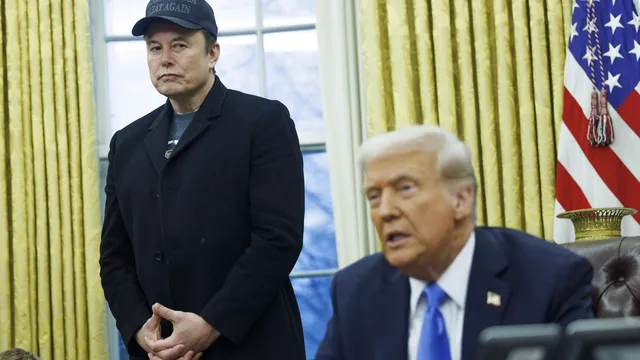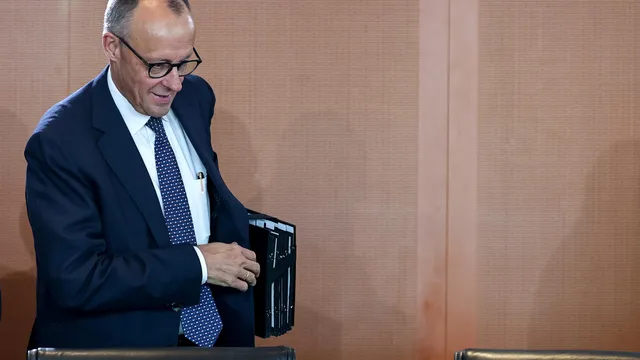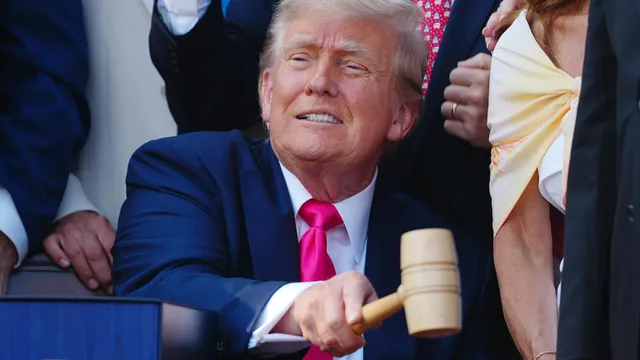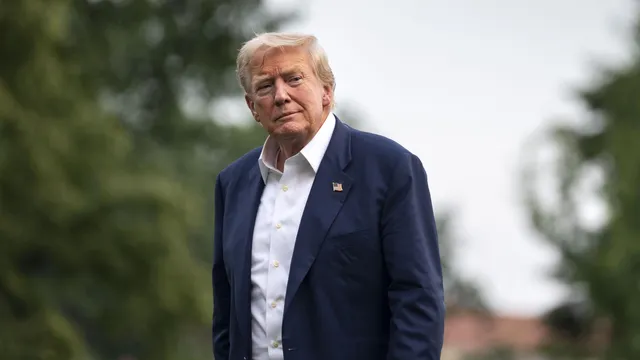The alliance between Donald Trump and Elon Musk was probably always going to be as short-lived as the Molotov–Ribbentrop Pact, the agreement that Nazi Germany signed with the Soviet Union in 1939, days before invading Poland. I won't stretch the analogy too far for obvious reasons, but suffice it to say that deals are rarely lasting when they are made for short-term gain between two parties with huge ambitions but different personalities.
The more important question is: Is this split a sign of something fundamentally wrong with the MAGA coalition? What does the rapid disillusionment of the Republican Party's most prominent new convert mean for the president and the broader fate of the party?
At first glance, not much. On the one hand, the rift appears to be primarily personal. In some respects, the MAGA movement is a cult of personality. Musk was not such a personality. The Tesla and SpaceX boss is a brilliant but unpredictable man whose pathologies can lead him to dark places, as we learned more after the split. It seems that even in this White House, some decencies cannot be violated.
However, Musk's growing hostility also seems to be based on a belated realization that the returns from his alliance are highly asymmetrical. As an example of Trump's ability to strike one-sided deals, this is hard to beat. What Musk gave—campaign money, good publicity for the Department of Government Efficiency's attack on wasteful spending, lost value for Tesla, and reduced personal wealth and reputation—did not equal what he was supposed to get in return. At least the Soviet Union got a piece of Poland and the Baltic states before Barbarossa ended the relationship.
But there is more to the rift than the inevitable separation of two powerful and incompatible egos. For all his idiosyncrasies, Musk represented a certain class of business leaders who, with varying degrees of enthusiasm, embraced Trump and his unorthodox style. They were alarmed by the left's suffocating control over the country's institutions and eagerly awaited the more economically orthodox parts of Trump's agenda. Many of them were surprised by the enthusiasm with which they voted last year, believing that he would deliver more of the good things from his first term. They hoped he would promote growth and economic opportunity, reverse the Biden administration's regulatory fetishism, and put an end to left-wing extremism.
They are only half satisfied with the result. In terms of deregulation, tax cuts, and cultural counter-revolution, Trump has not disappointed. But more and more business leaders I talk to (quietly) express concern about misguided tariff and trade policies, a lack of interest in fiscal prudence, and the deliberate alienation of allies and partners around the world (the latter problem being one to which Musk contributed).
The divorce from Musk is symbolic of the tensions at the heart of the new Republican coalition. Trump's multiethnic alliance of the working and middle classes has been the engine of an extremely successful cultural counterrevolution on issues of borders, race, gender, and national security. But these same voters are not overly enthusiastic about Musk's free-market approach to trade, immigration, taxes, and spending.
This tension is not new. It has been a defining feature of Republican politics for decades. It will probably remain largely suppressed while Trump is in charge, due to the sheer force of his personality and the willingness of his less enthusiastic supporters to fall in line. But we can expect these rifts to deepen in the coming years, when the battle for the future of the party begins in earnest.
The other significance of the split with Musk is that it represents a slight loosening of the atmosphere of coercive authoritarianism that Trump has created. As business leaders have watched his treatment of law firms, media companies, and others he considers hostile, most have been reluctant to join in the public criticism. They will watch closely to see if Musk faces retaliation. But the spectacle of America's richest man and most creative entrepreneur brazenly calling out the president is bound to change the climate.
In recent weeks, there have been signs that other parts of civil society are rising up to challenge Trump's dominance: senators criticizing his fiscal approach and insisting on support for Ukraine; the administration's deference to court rulings on deportation.
When he acquired and transformed Twitter, Musk described himself as a “free speech absolutist.” Over the past year, he has not always behaved as such. But his dramatic break with the White House is a useful reminder that, for all the concerns Trump understandably raises about the health of our democracy, the pluralistic, diverse republic is not so easily undone. | BGNES
---
Analysis by Gerard Baker for The Wall Street Journal

 Breaking news
Breaking news
 Europe
Europe
 Bulgaria
Bulgaria







